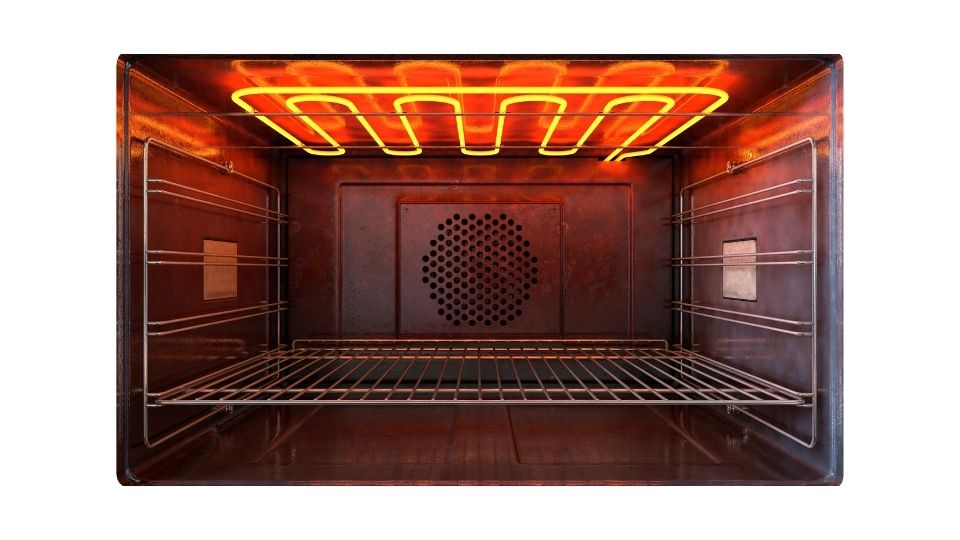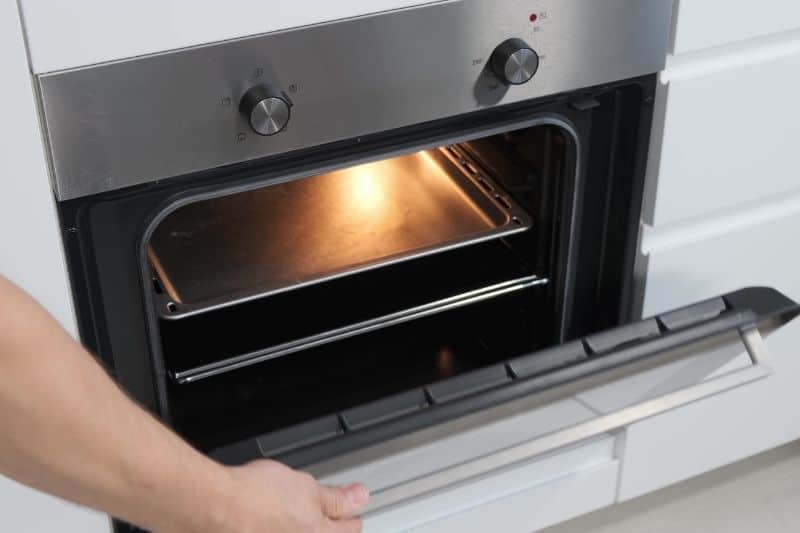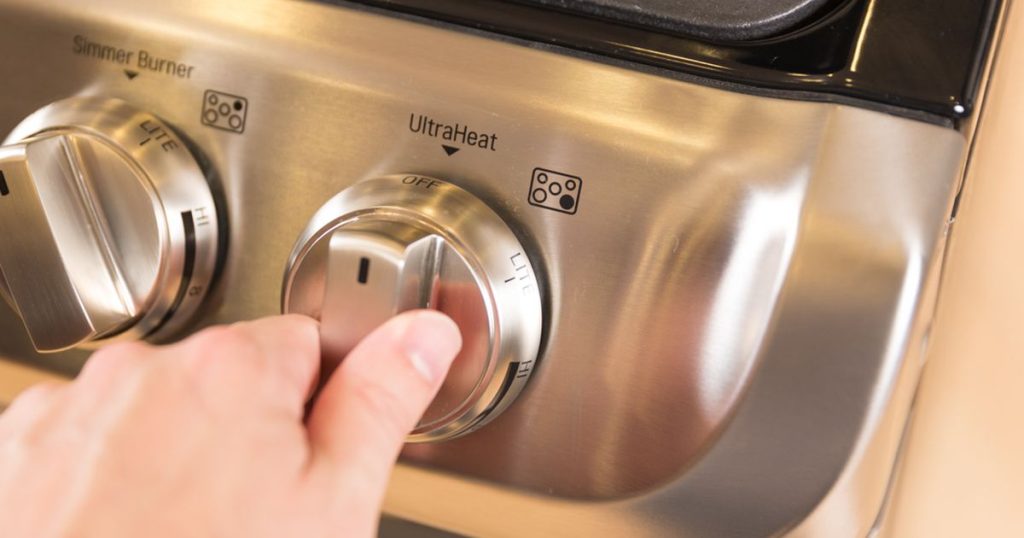Is There a Clicking Sound Coming from Your Oven? You Have The Power to Put an End to it!

Most of us have probably heard that clicking sound for years without ever thinking about what it signifies. I mean, as long as everything works and my lasagnas are cooked to perfection, there’s nothing to worry about, right?
Ovens create clicking noises when the control relay cycles between the bake and broil elements to regulate and maintain the oven’s temperature. Still, they can also make clicking noises when the relays lose power and turn back on, signaling a faulty connection. While the clicking sounds aren’t necessarily dangerous, you should have your oven inspected if it begins to make clicking noises regularly.
Some newer models even have a louder clicking sound than earlier models, allowing you to hear it more clearly. However, as unusual as the clicking may sound, it usually does not signify that something is wrong with your oven; rather, it could suggest that the oven’s functions are functioning properly.
While researching this, I discovered that many factors could cause it. Let’s look at them separately and what you should do about them.
Is It Necessary for My Oven to Make a Clicking Noise?

In terms of operation, each oven is unique. Because there are many sorts of ovens, there are also various types of mechanics or electronics at work behind the curtain. Gas and electric ovens are two of the most common types of ovens.
An electric oven features wires that begin distributing heat throughout the oven when the temperature is adjusted, and the oven is started. In contrast, a gas oven requires igniters to light the oven and the burners.
Both can generate a clicking noise, yet it’s the same clicking sounds in different situations and for different causes.
The igniter in a gas oven generates a clicking sound as it creates a spark to light the burner. This clicking noise should go away as soon as the burner or oven is turned on. On the other hand, few people are concerned by the few clicks that a gas oven makes during startup, and they rarely question it.
As a result, I’m betting that the clicking noise that alerts you isn’t the clicking noise that occurs when you start the burner, which doesn’t happen at random or for a long time. If the sound doesn’t stop, occurs at random, or continues even when the oven is switched off, you may have noticed that something isn’t quite right.
Your oven may continue to make clicking noises because:
There is an abnormally high level of moisture in the air: Moisture could be one of the reasons your oven is generating clicking noises. If moisture gets down to the igniter, it can cause it to emit a repetitive clicking noise. It’s a common problem that might cause your oven to click even when it’s switched off.
Fortunately, it rarely necessitates a complex solution.
Moisture can be eliminated by either heating the top burners of the oven and waiting for it to evaporate entirely or unplugging the oven and letting it dry for as long as needed. If moisture is causing the clicking sounds, it should go away once the moisture has evaporated.
There are bake and broil components in an oven, and the control relays cycle between them. The broil option heats the upper element, leaving the bottom unheated, but the bake setting heats both the upper and lower elements to spread heat equally. A clicking noise is produced as the control relay cycles between these elements, and this is most likely what you are experiencing if the oven produces the noise while in operation.
Elements can be turned on and off to manage temperature and maintain the desired temperature. When the elements are turned on and off, they make a clicking sound, which could be what you’re heating. You may have a faulty mainboard or weak connections if this sound gets out of hand and occurs regularly with a high frequency.
The stove hasn’t been used in quite some time: More clicking noises may be produced by an oven or stove that has been left idle for a long time. This is because it may take some time for the airlines inside the pipes to clear, allowing gas to be delivered to the burners and ignite them.
Wait half a minute after turning on the ignition. If it isn’t on, turn it off, wait a minute, and turn it back on. This should kickstart the gas and, over time, minimize the clicking.
The ignition switch may be jammed: If the ignition switch is stuck, the function will be fully disabled. You should get advice from a qualified specialist in this situation.
When I turn off my oven, why does it click?

As I indicated earlier in the essay, the clicking noise made by the oven is not always there when it is turned on or utilized. The oven may continue to make the same sound long after being switched off in some circumstances.
I’ve had to deal with this, and it was more frustrating than I anticipated. On the other hand, frustration does not suit the bill as well as worry.
I formerly resided in a two-story home. With the bedroom on the top floor and the kitchen on the bottom, so I’d prepare dinner in the evening and be in bed attempting to sleep a few hours later. My oven would now start generating clicking noises when I went to bed for a brief and intense period.
My first reaction was that I had forgotten to turn off the oven, which drove me to jump out of bed and walk downstairs to check on it, only to find it switched off and still clicking.
Regardless, every time it clicked, I went down the stairs to check on it. I’d heard about the boy who cried wolf, and I didn’t want to be in the middle of a house fire.
I performed some investigation and discovered that the clicking was caused by dampness. I kept the oven on for a couple of hours without anything in it, then let it dry overnight. The oven made a clicking noise while starting the fire the following week, and then nothing. When the clicking starts, I’ll know just what to do.
Is it possible that clicking noises from an oven indicate danger?
It is not unsafe to use an oven that makes clicking noises. The igniter can make 3-5 clicking noises to get the burner going once it gets going. However, if the clicking noise becomes unusual, you should contact the manufacturer immediately to ensure your safety and troubleshoot the oven.
Because there are so many different ovens on the market, it isn’t easy to give general safety advice. Instead, I usually recommend contacting the oven’s manufacturer, as they’re probably the most familiar with the mechanics and problems that might arise with their models.











